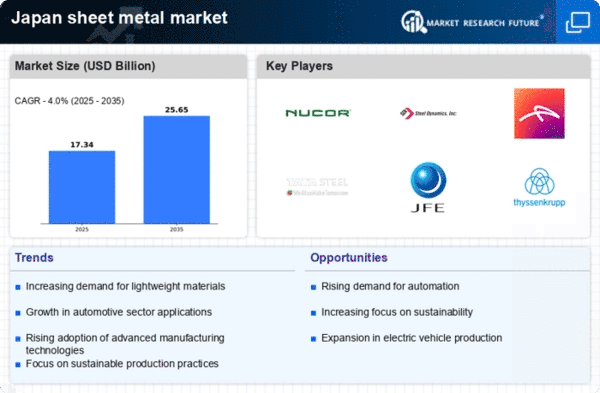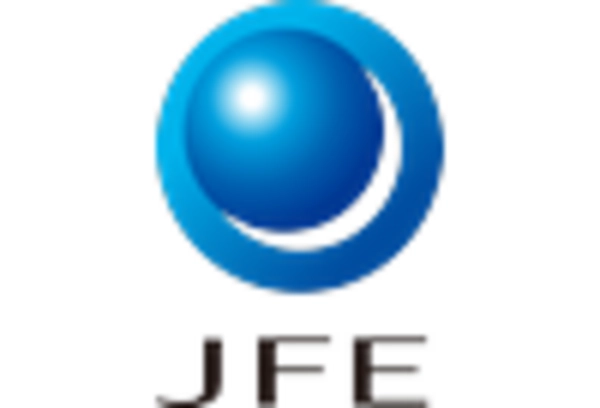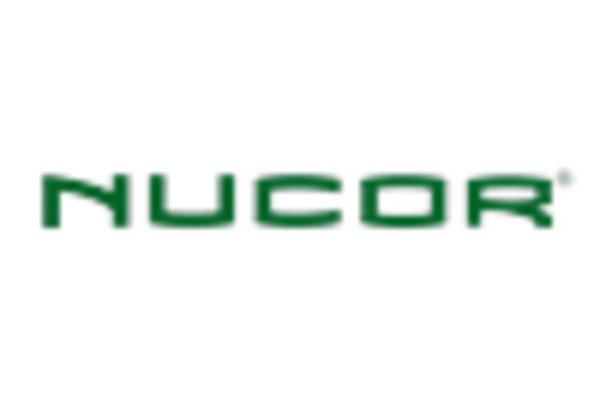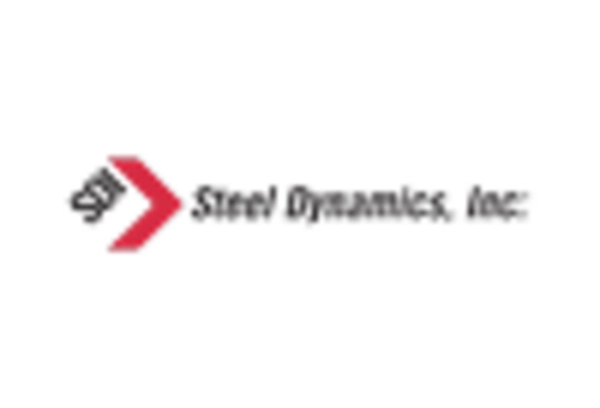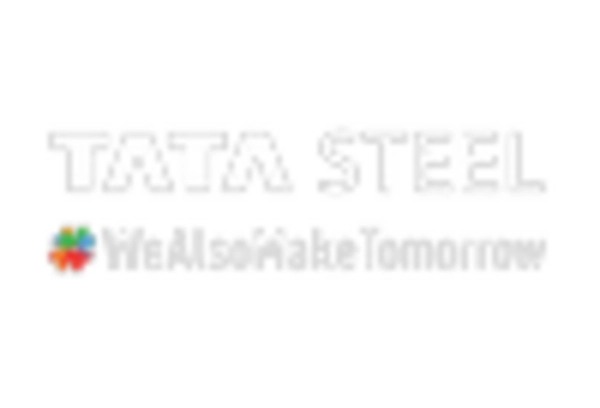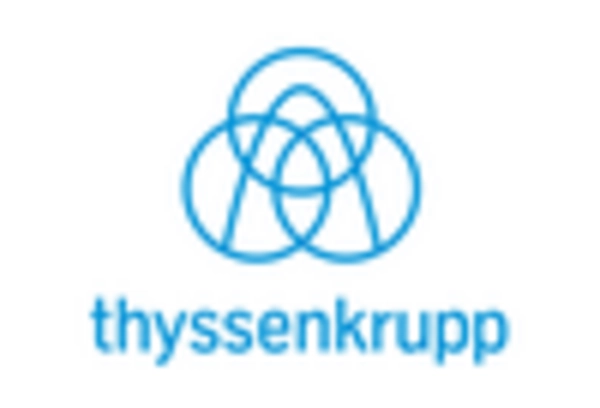The sheet metal market in Japan is characterized by a competitive landscape that is increasingly shaped by innovation, sustainability, and strategic partnerships. Key players such as JFE Holdings Inc (JP), ArcelorMittal (LU), and Tata Steel Limited (IN) are actively pursuing strategies that emphasize technological advancement and operational efficiency. JFE Holdings Inc (JP) has focused on enhancing its production capabilities through investments in advanced manufacturing technologies, which positions the company favorably in a market that demands high-quality and precision-engineered products. Meanwhile, ArcelorMittal (LU) has been expanding its footprint in Asia, leveraging its global expertise to cater to the growing demand for sheet metal in various sectors, including automotive and construction. Tata Steel Limited (IN) appears to be concentrating on sustainability initiatives, aiming to reduce its carbon footprint while maintaining competitive pricing, thus influencing the overall market dynamics.The business tactics employed by these companies reflect a trend towards localizing manufacturing and optimizing supply chains to enhance responsiveness to market demands. The competitive structure of the market is moderately fragmented, with several players vying for market share. However, the collective influence of major companies like JFE Holdings Inc (JP) and Tata Steel Limited (IN) suggests a potential consolidation trend, as these firms seek to leverage economies of scale and technological synergies.
In October JFE Holdings Inc (JP) announced a strategic partnership with a leading technology firm to develop smart manufacturing solutions aimed at increasing production efficiency and reducing waste. This move is significant as it aligns with the broader industry trend towards digital transformation, potentially setting a new standard for operational excellence in the sector. Furthermore, in September 2025, Tata Steel Limited (IN) launched a new line of eco-friendly sheet metal products, which underscores its commitment to sustainability and positions the company as a leader in environmentally responsible manufacturing practices.
In August ArcelorMittal (LU) completed the acquisition of a local competitor in Japan, which is expected to enhance its market presence and operational capabilities in the region. This acquisition not only strengthens ArcelorMittal's competitive position but also reflects a strategic shift towards consolidating resources to better serve the growing demand for high-quality sheet metal products in Japan.
As of November the competitive trends in the sheet metal market are increasingly defined by digitalization, sustainability, and the integration of artificial intelligence (AI) into manufacturing processes. Strategic alliances are becoming more prevalent, as companies recognize the need to collaborate in order to innovate and meet evolving customer expectations. The shift from price-based competition to a focus on technological advancement and supply chain reliability is evident, suggesting that future competitive differentiation will hinge on the ability to innovate and adapt to changing market conditions.


